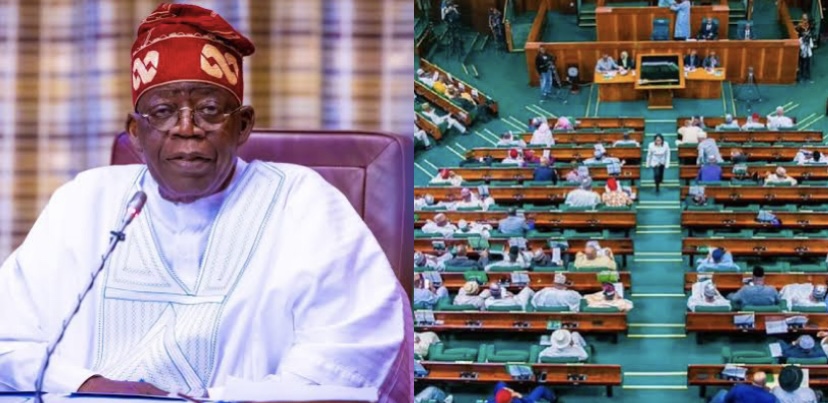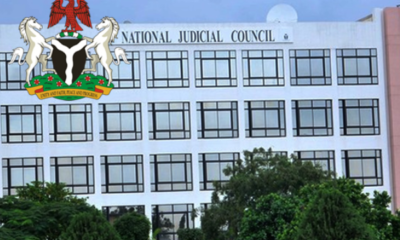Politics
JUST IN: House of Reps Moves to Strip President of Power to Appoint INEC Chairman
The intention is to reduce political interference and boost public confidence in Nigeria’s electoral system.

The House of Representatives Committee on Constitution Review is considering a bill to amend the 1999 Constitution of Nigeria, specifically to reform the process of appointing the Chairman of the Independent National Electoral Commission (INEC).
According to sources familiar with the development, the proposed amendment seeks to involve the National Judicial Council (NJC) in selecting the INEC chairman. The intention is to reduce political interference and boost public confidence in Nigeria’s electoral system.
The move echoes the 2007 Electoral Reform Committee recommendations led by the late Chief Justice of Nigeria, Muhammadu Uwais. The Uwais panel had suggested that the NJC should appoint the INEC chairman, with the commission’s funding placed as a first-line charge on the Consolidated Revenue Fund.
Reacting in an interview with Sunday PUNCH, former INEC Chairman Prof. Attahiru Jega described the proposal as “a welcome development.” He said:
“This proposal is one of the sound recommendations that could help in insulating the electoral body from undue political and executive pressures. It is essential for entrenching credibility and integrity in our democratic processes.”
Samson Itodo, Executive Director of YIAGA Africa, also welcomed the bill but voiced concerns about the NJC’s neutrality. He stated:
“We must ask if the NJC is non-partisan enough to oversee such a delicate responsibility. Over time, we’ve seen presidents appoint loyalists and politically exposed individuals to head INEC. That’s why YIAGA Africa referred to the situation as institutional capture.”
Itodo recommended involving a broader multi-stakeholder committee, with final confirmation left to the National Assembly after presidential nomination.
Auwal Rafsanjani, Executive Director of the Civil Society Legislative Advocacy Centre (CISLAC), supported NJC involvement. He argued:
“The involvement of the NJC will not only enhance the integrity of INEC but also serve to improve the credibility of the judiciary. Successive presidents have flouted constitutional provisions that bar partisanship in INEC leadership.”
Not all stakeholders agree. Constitutional lawyer and public affairs analyst Abdul Mahmud criticised the proposal as “deeply flawed.” He said:
DON’T MISS: Mixed Reactions as Labour Party Chairman Julius Abure Visits Nyesom Wike in Abuja
“To entrust the NJC with such a vital role is like asking the fox to guard the henhouse. We’re not deepening democracy here; we’re merely shifting power among a closed group of insiders.”
Mahmud pointed to controversies within the NJC, including the retirement of Justice Olukayode Ariwoola and visa issues involving Justice Kudirat Kekere-Ekun, as examples of challenges undermining judicial credibility.
Dr. Joe Okei-Odumakin, founder of Women Arise and pro-democracy activist, warned that presidential discretion could still override NJC recommendations:
“It’s important that whoever is involved in this process acts with integrity and patriotism. The true test will be whether this review translates into real independence for INEC.”
Public affairs analyst Jackson Ojo also expressed scepticism:
“The judiciary itself is struggling with trust issues. This amendment won’t mean much unless the process is truly transparent and inclusive.”
The bill remains under consideration, with public hearings and further consultations expected as part of Nigeria’s ongoing constitutional reform efforts.























You must be logged in to post a comment Login